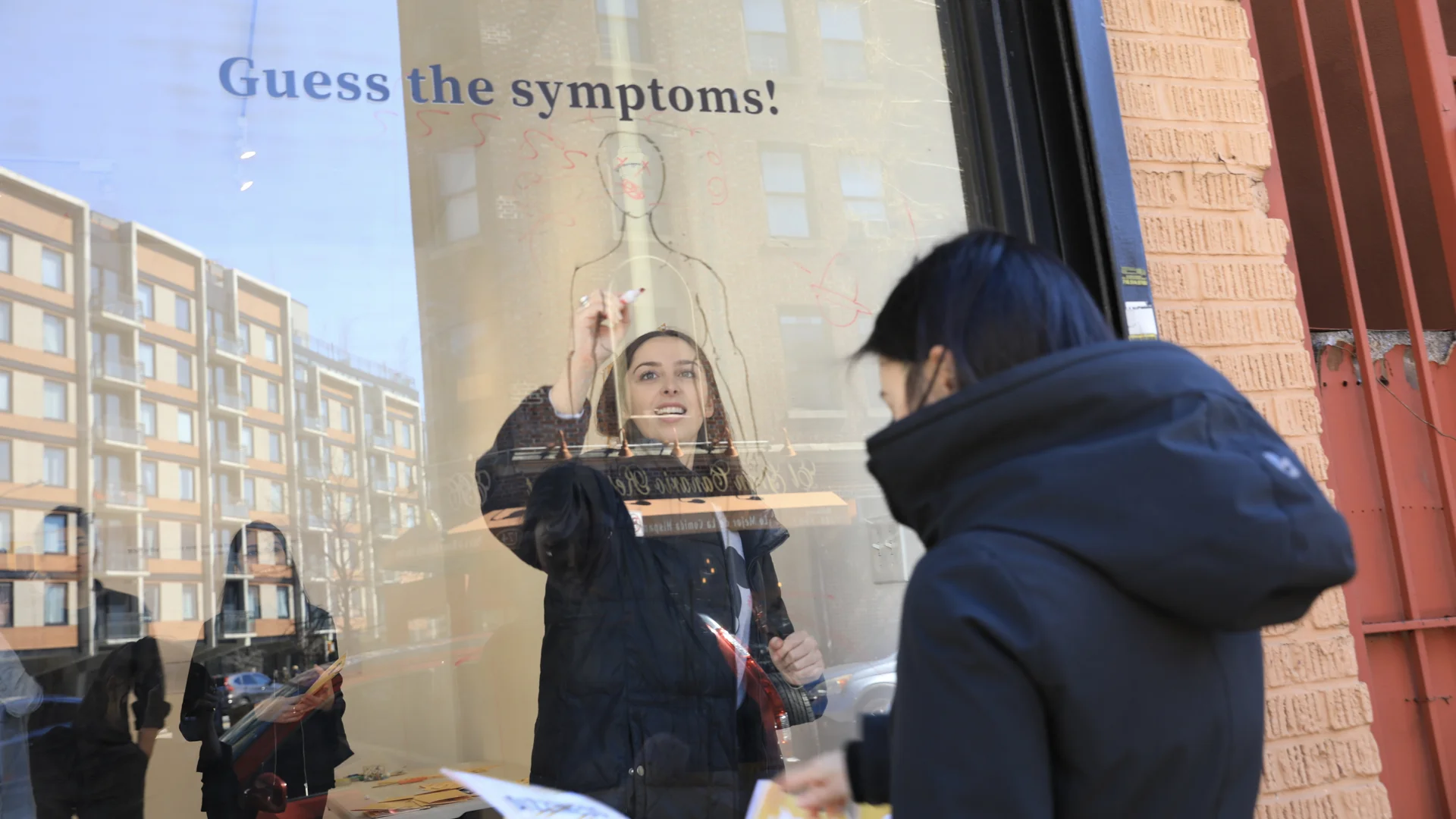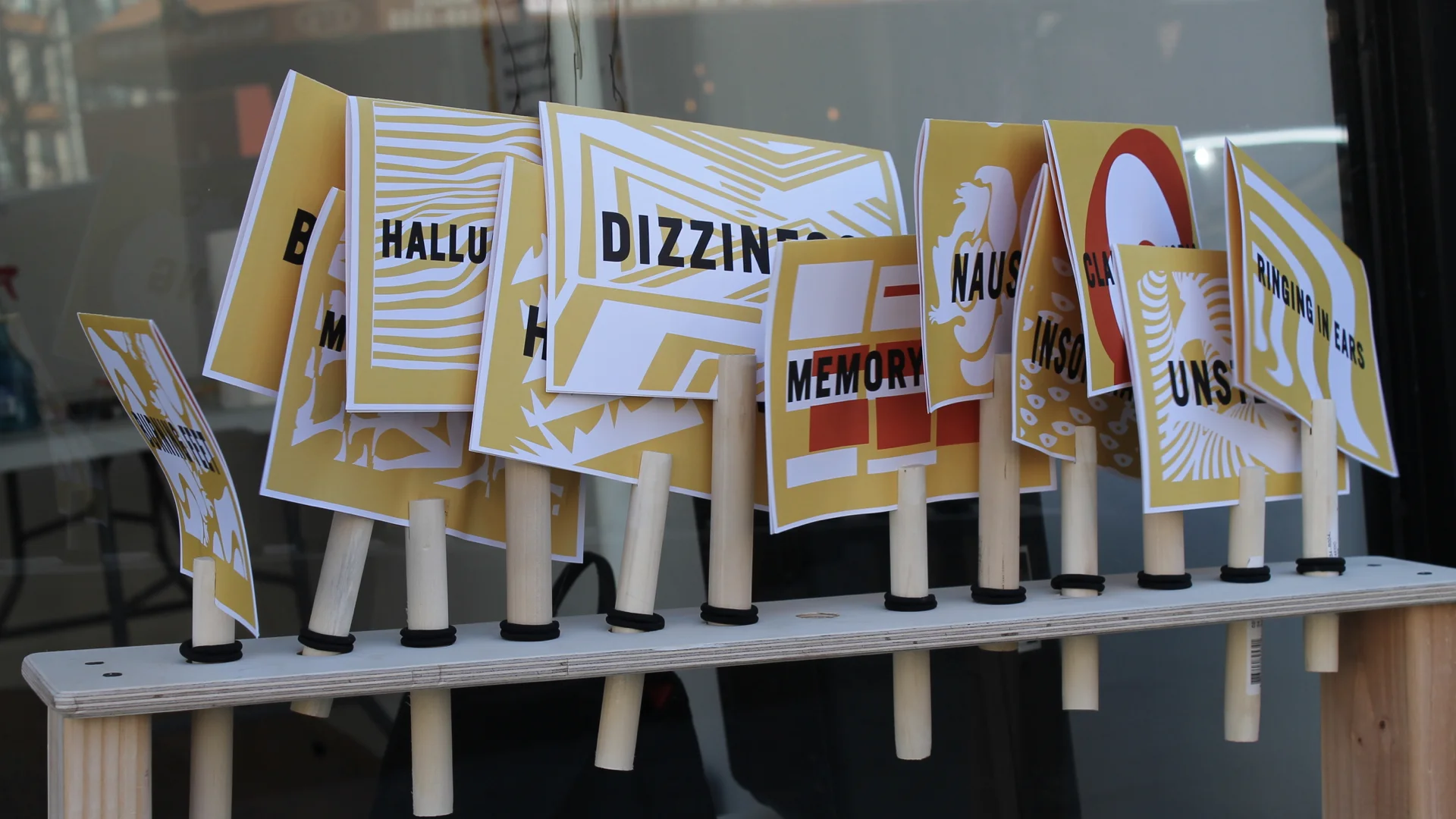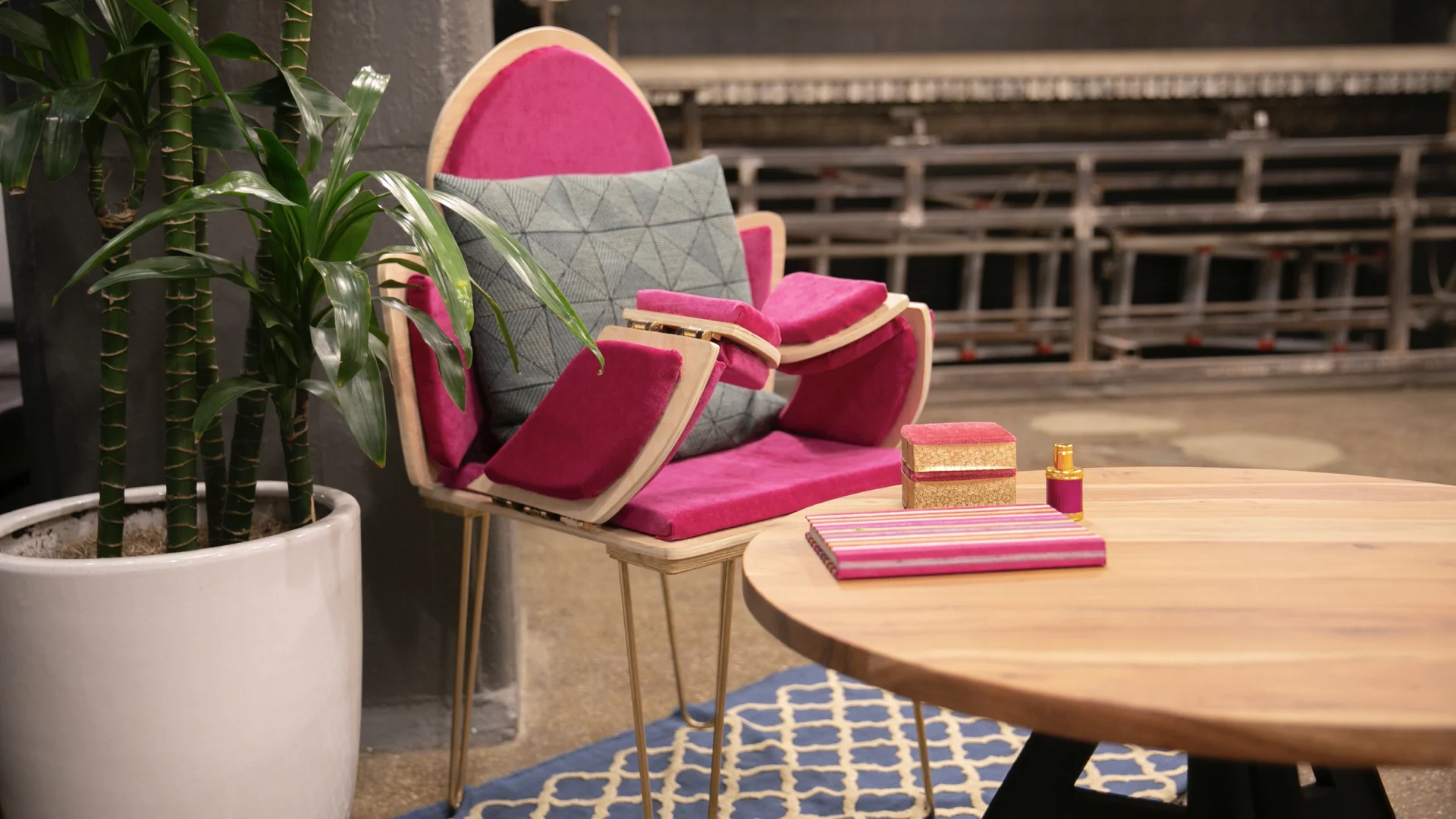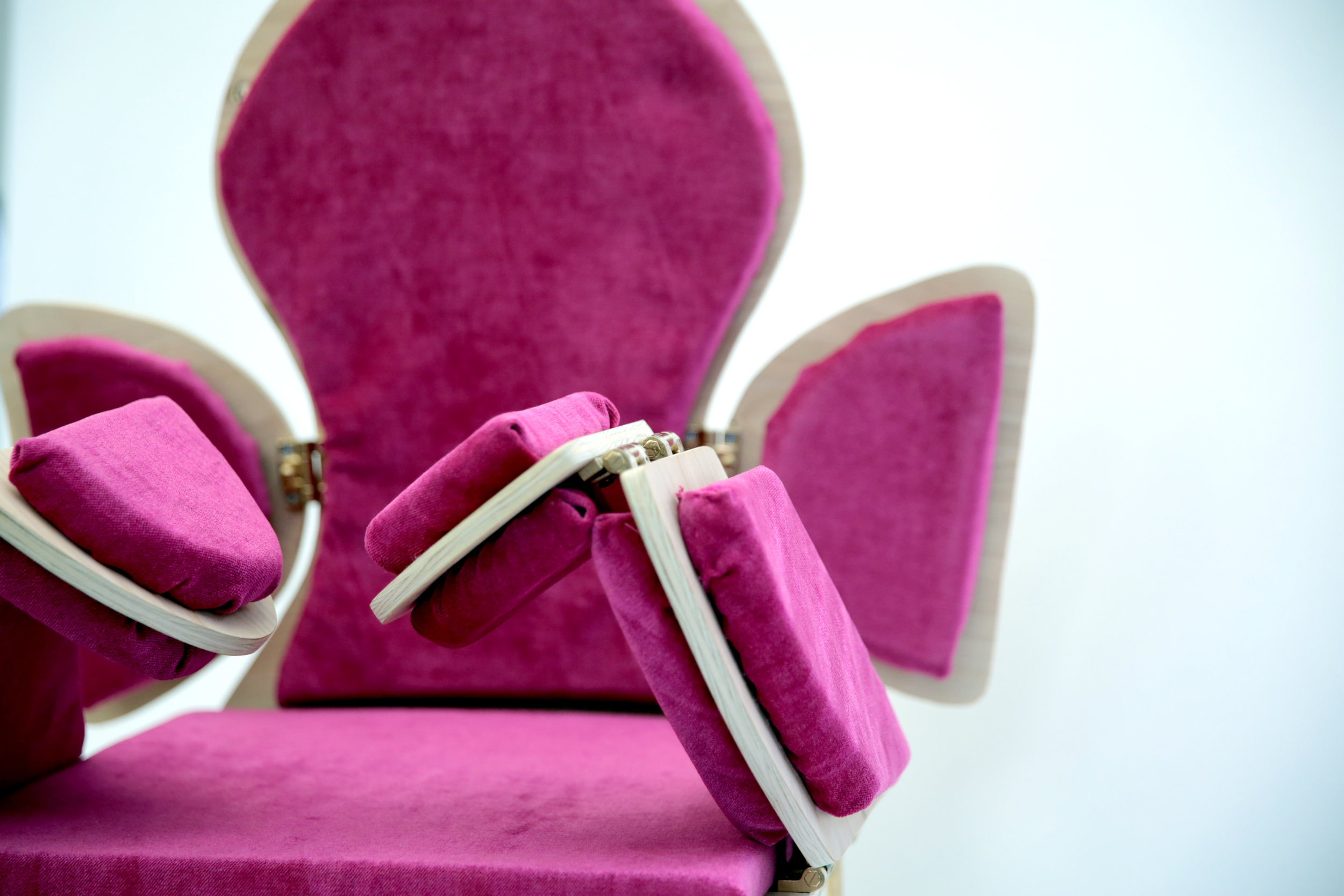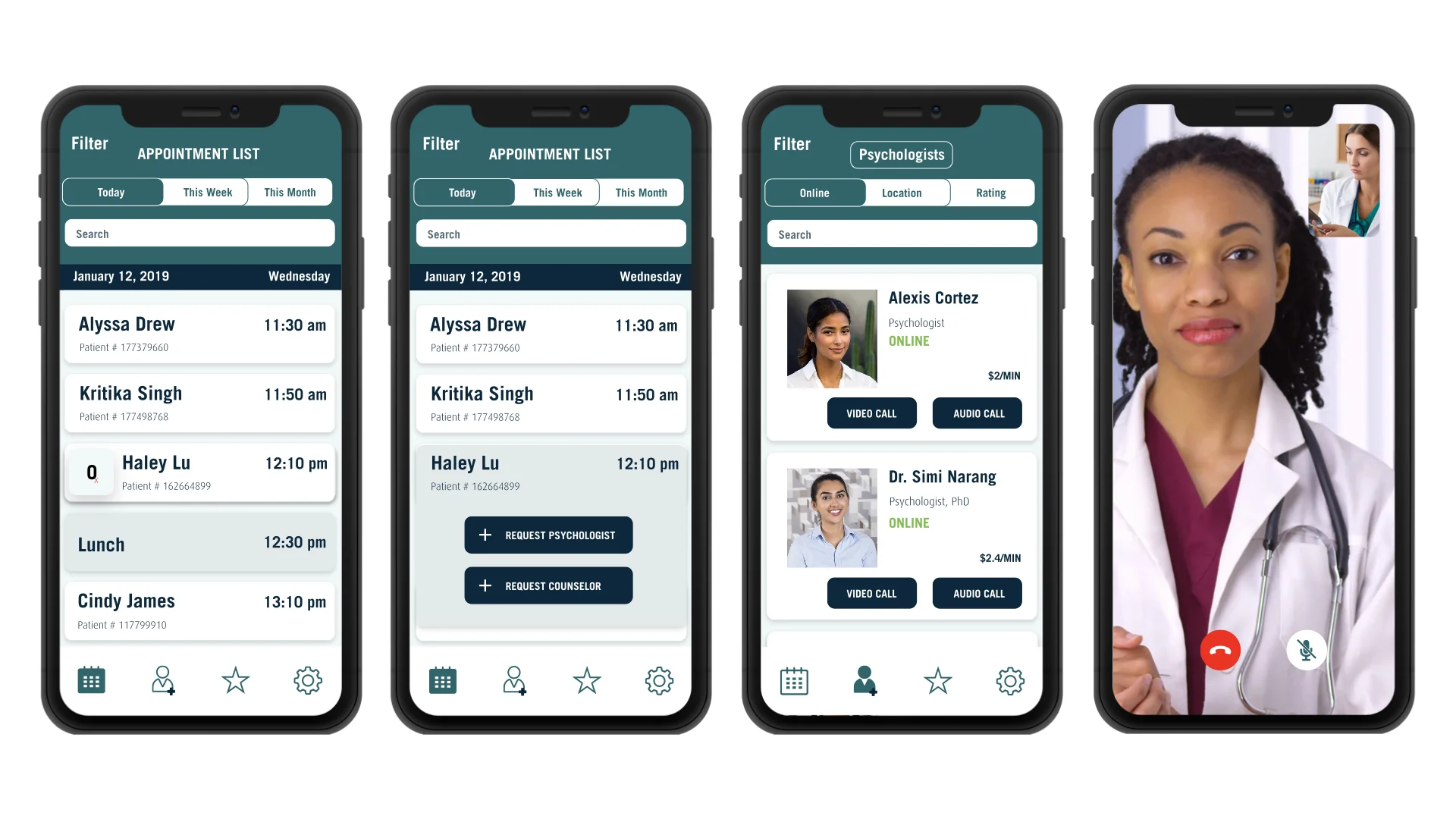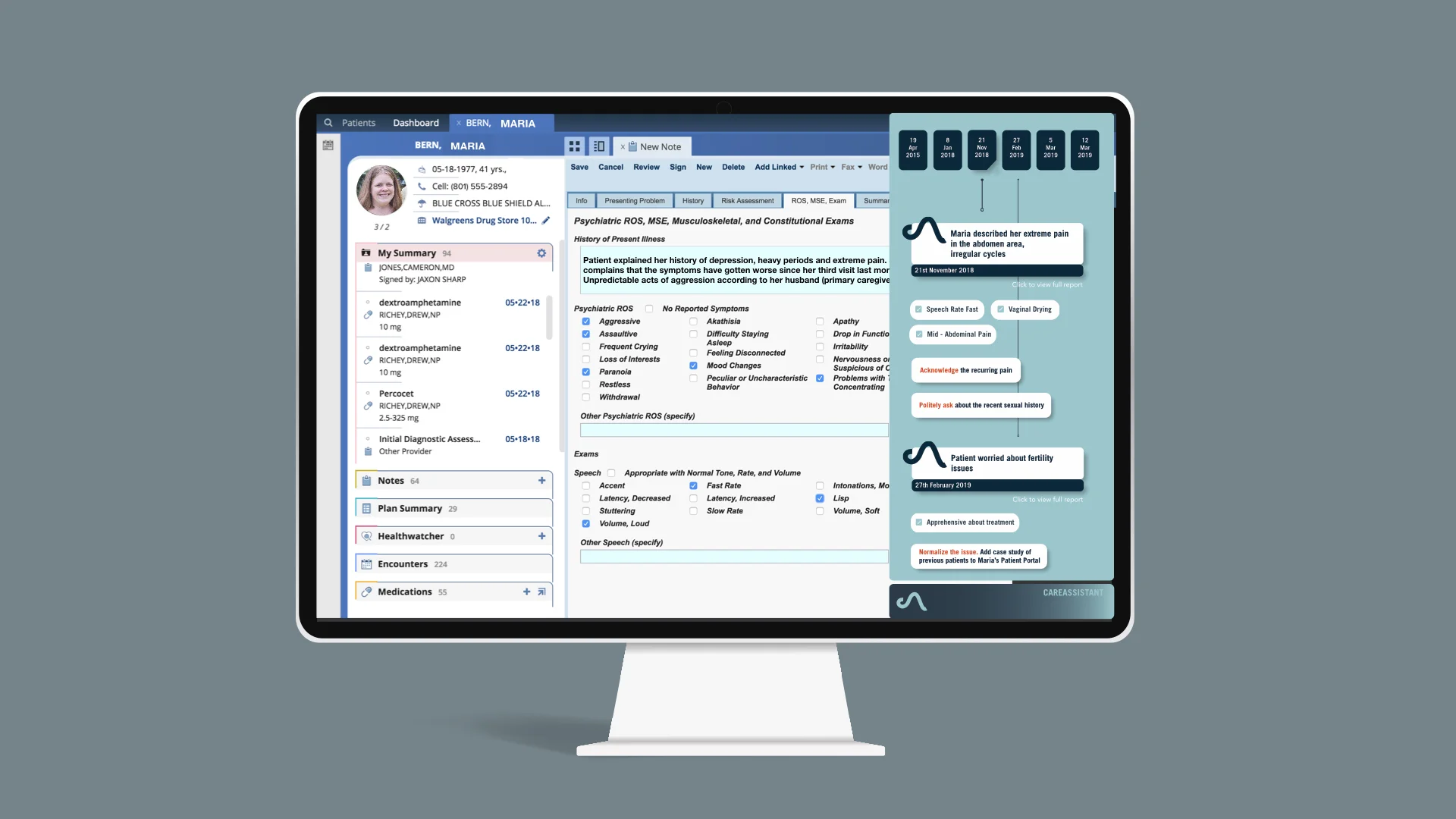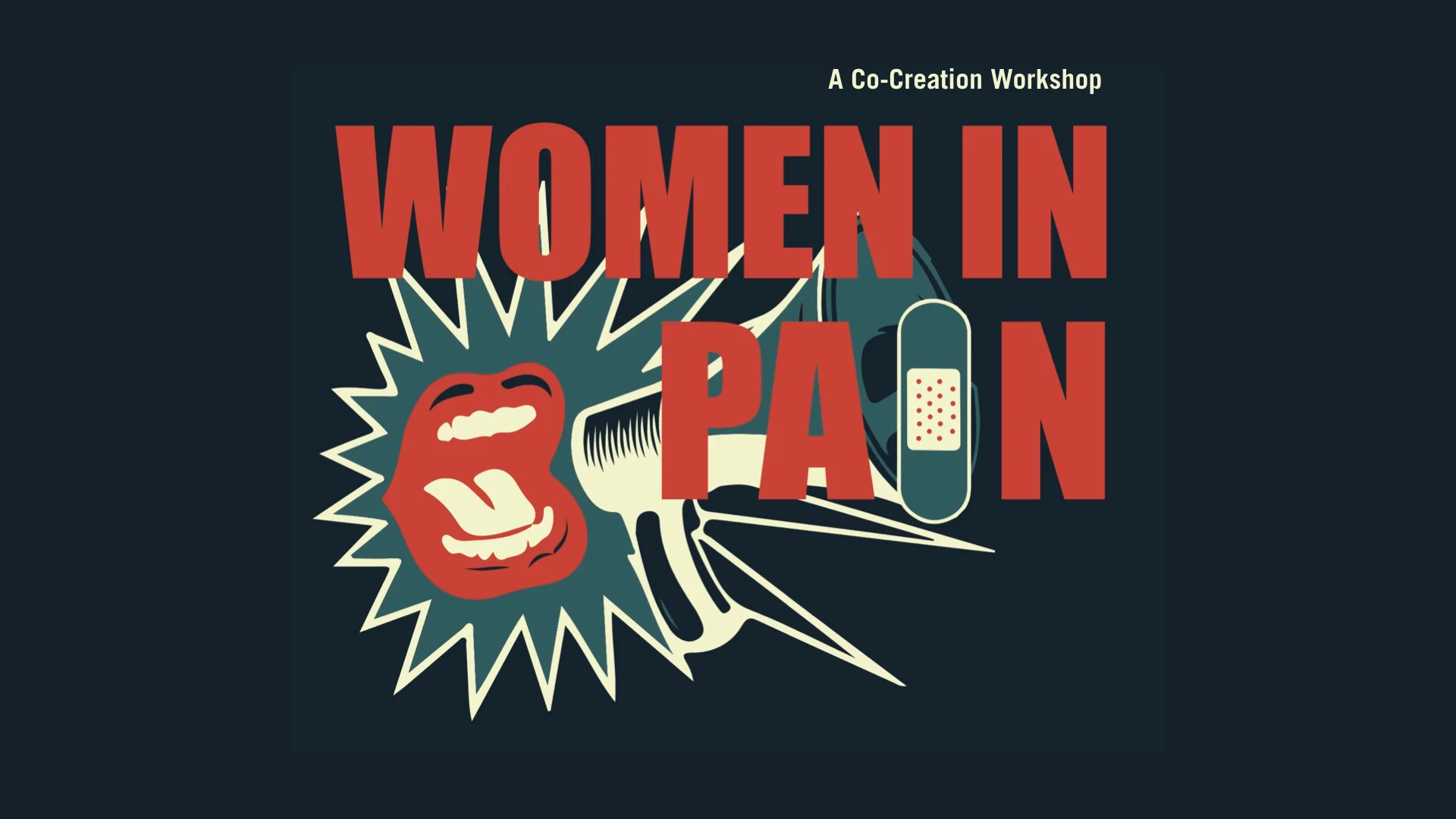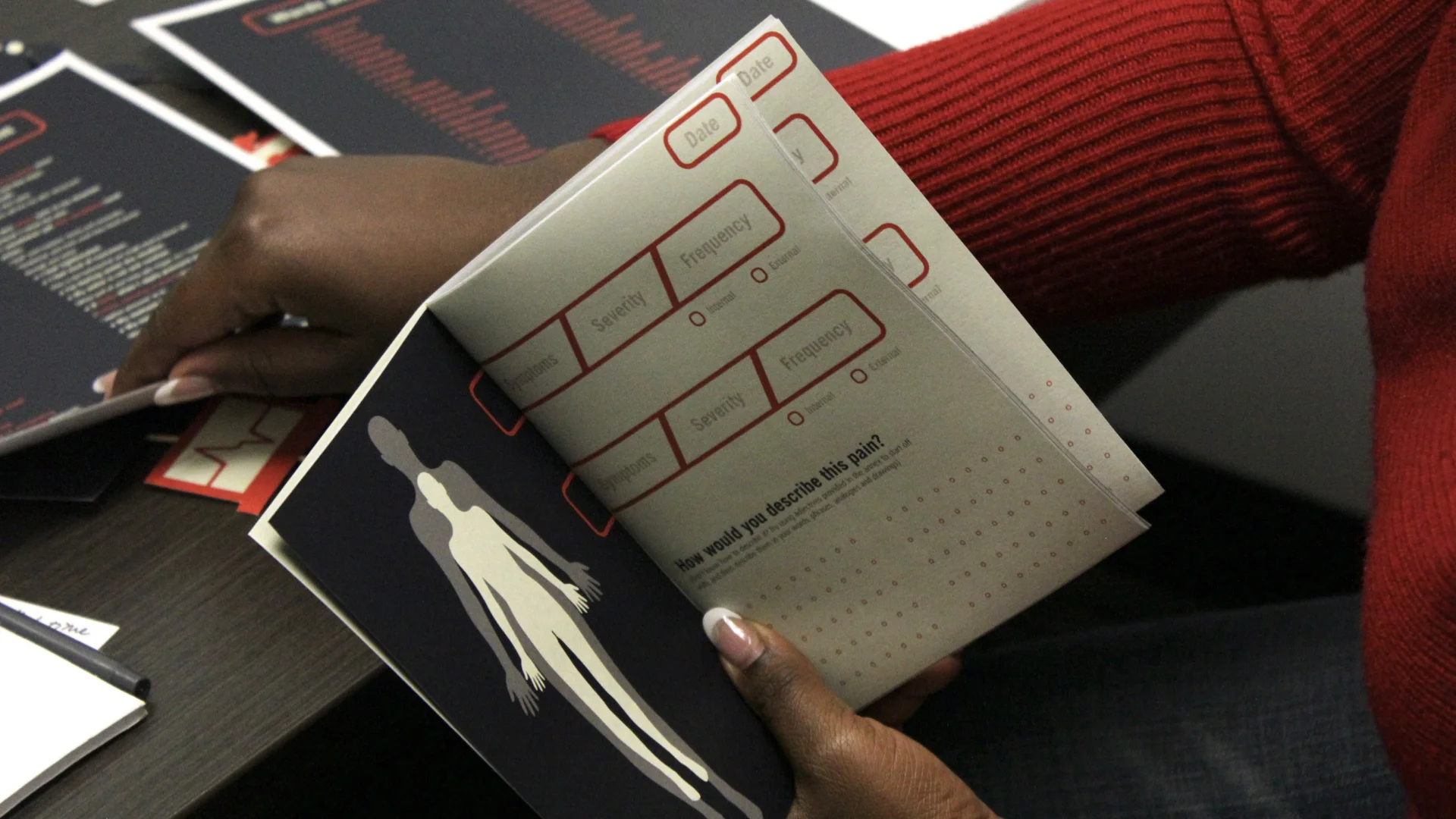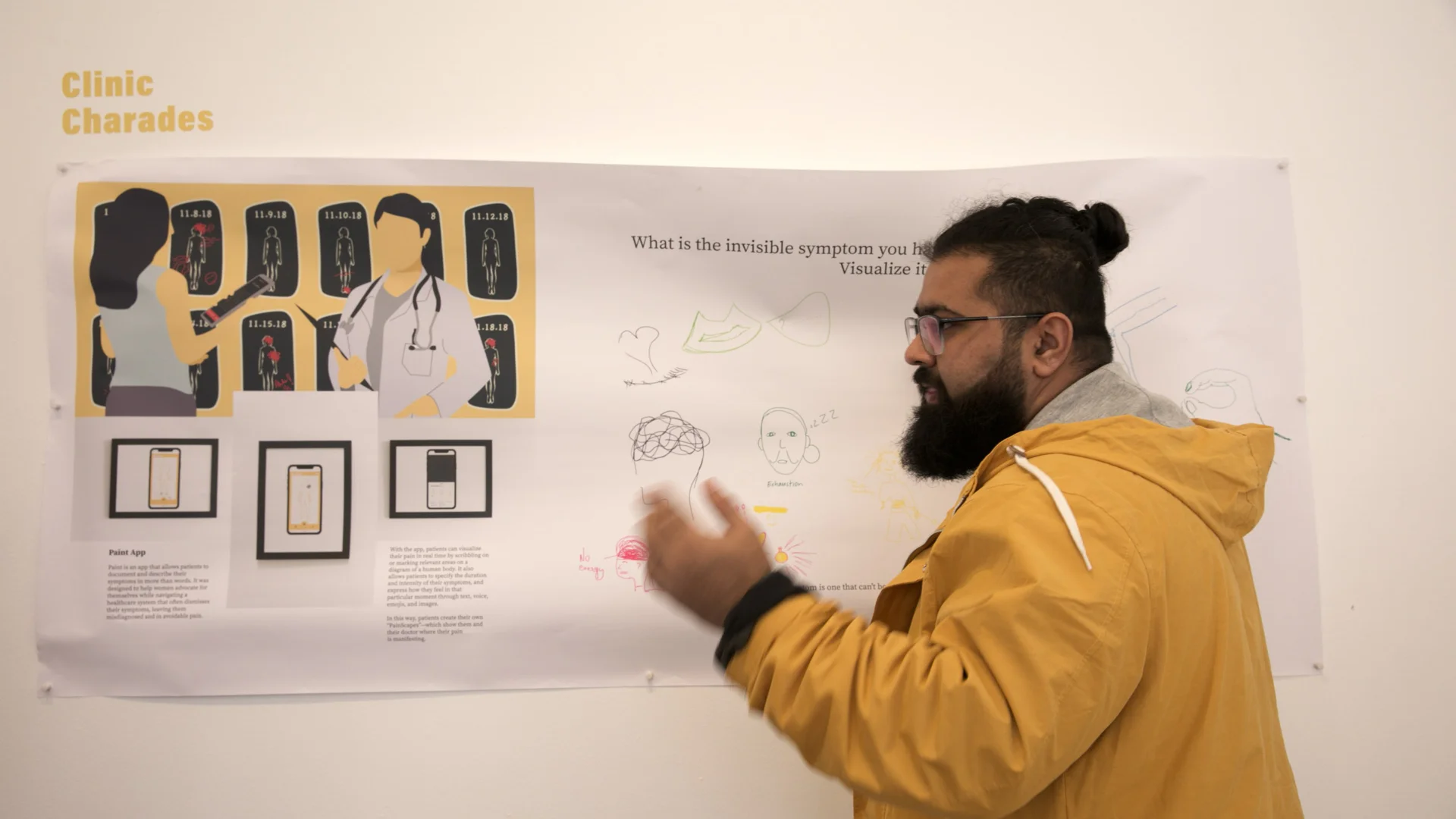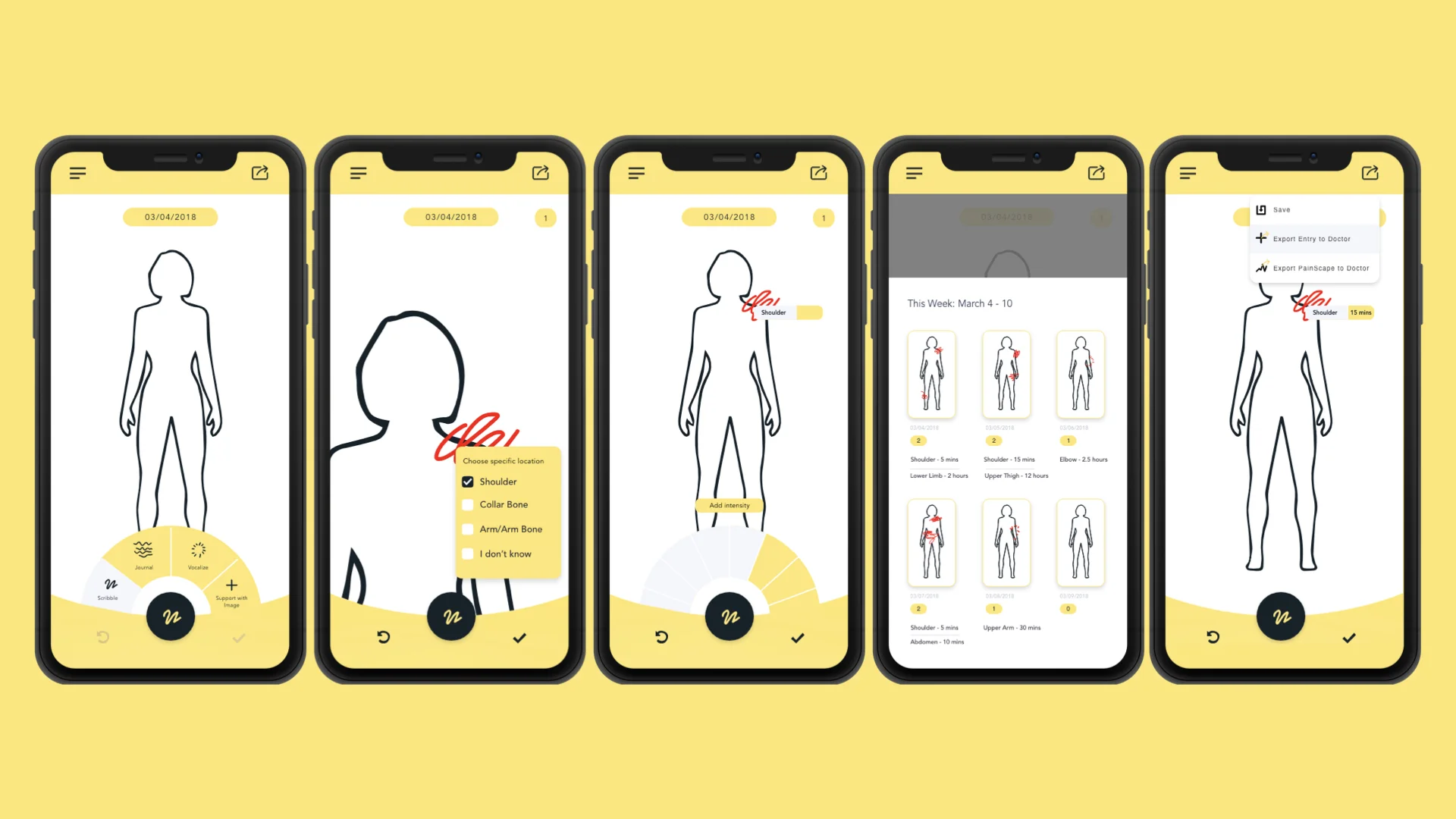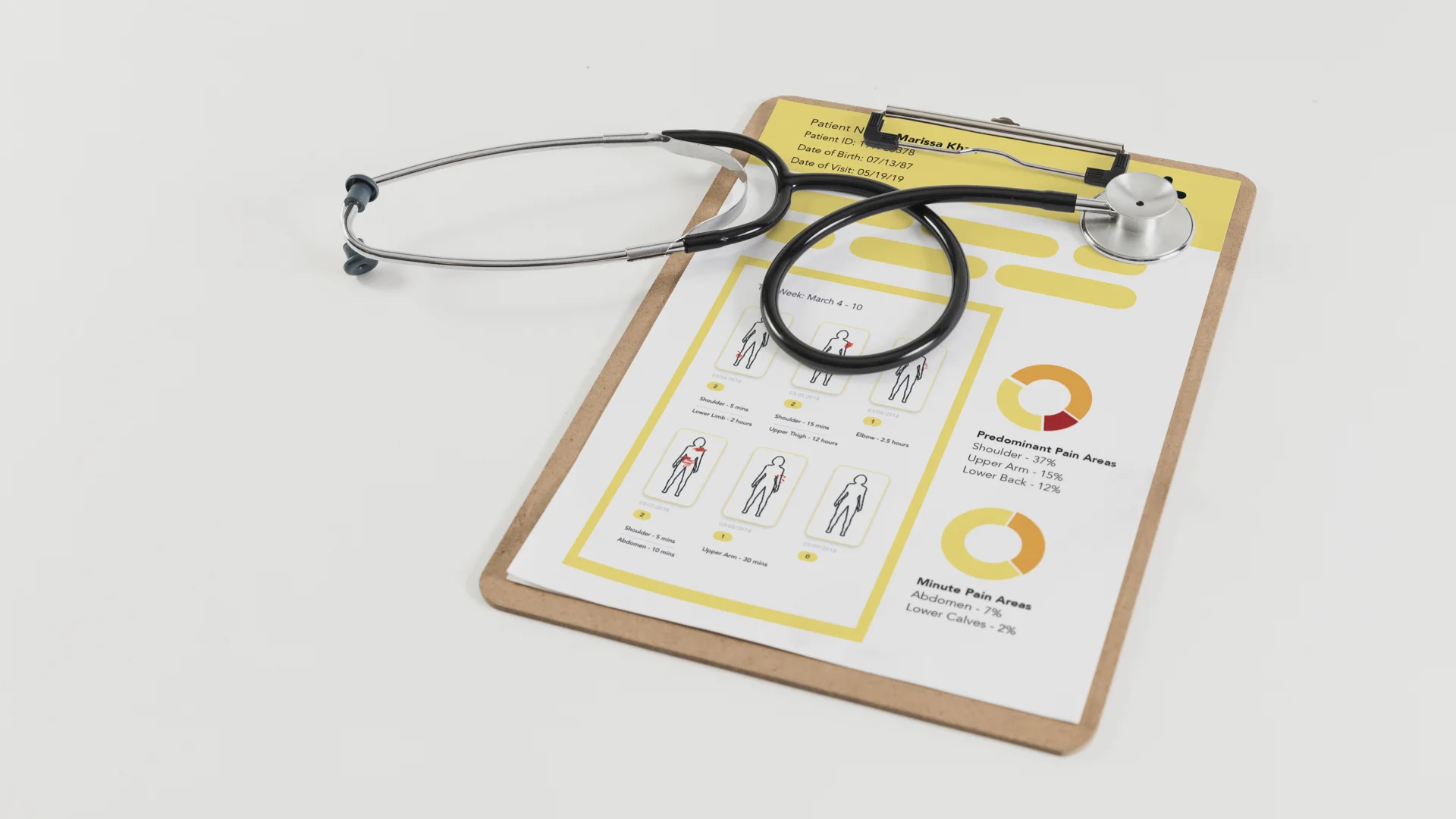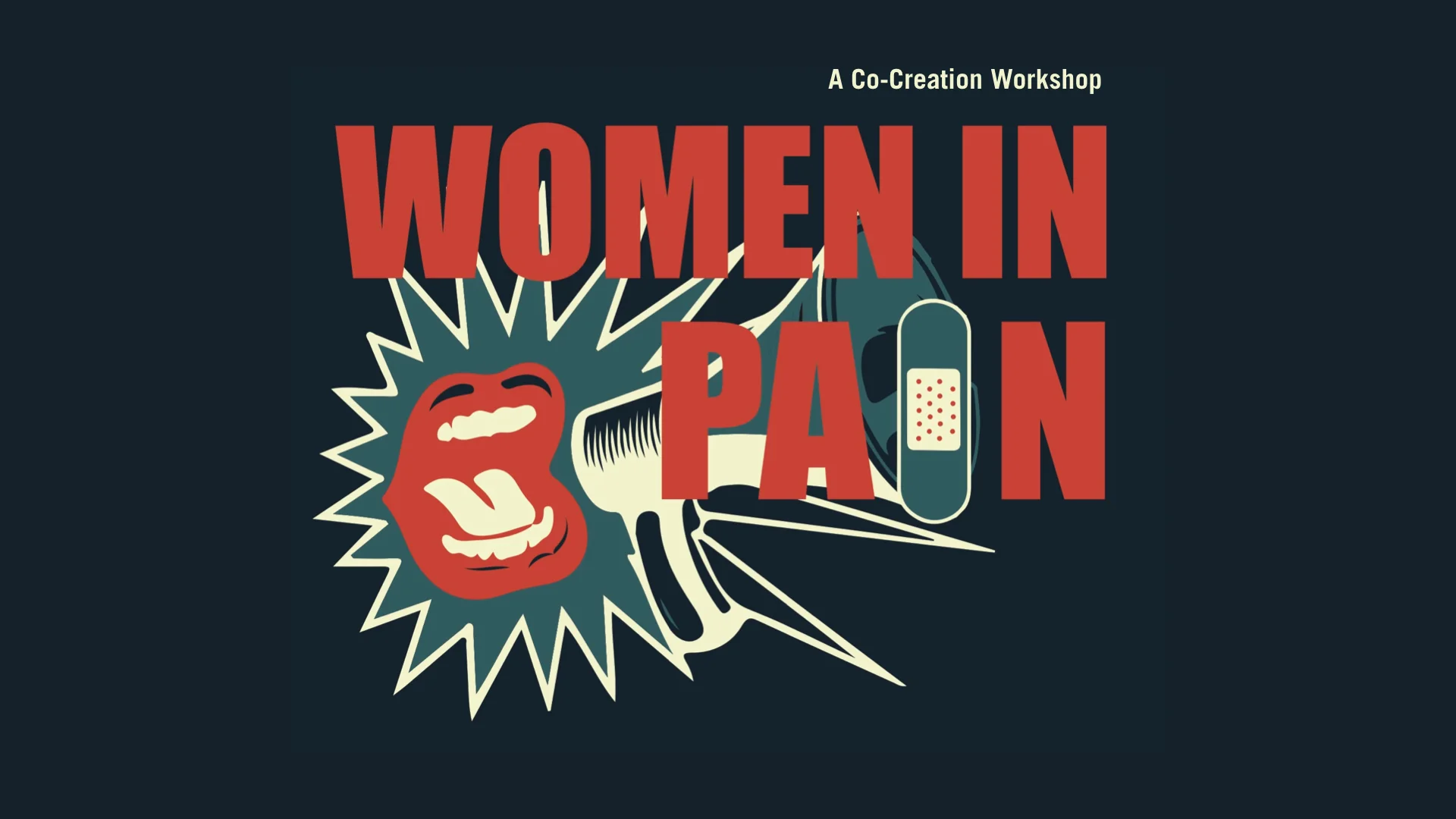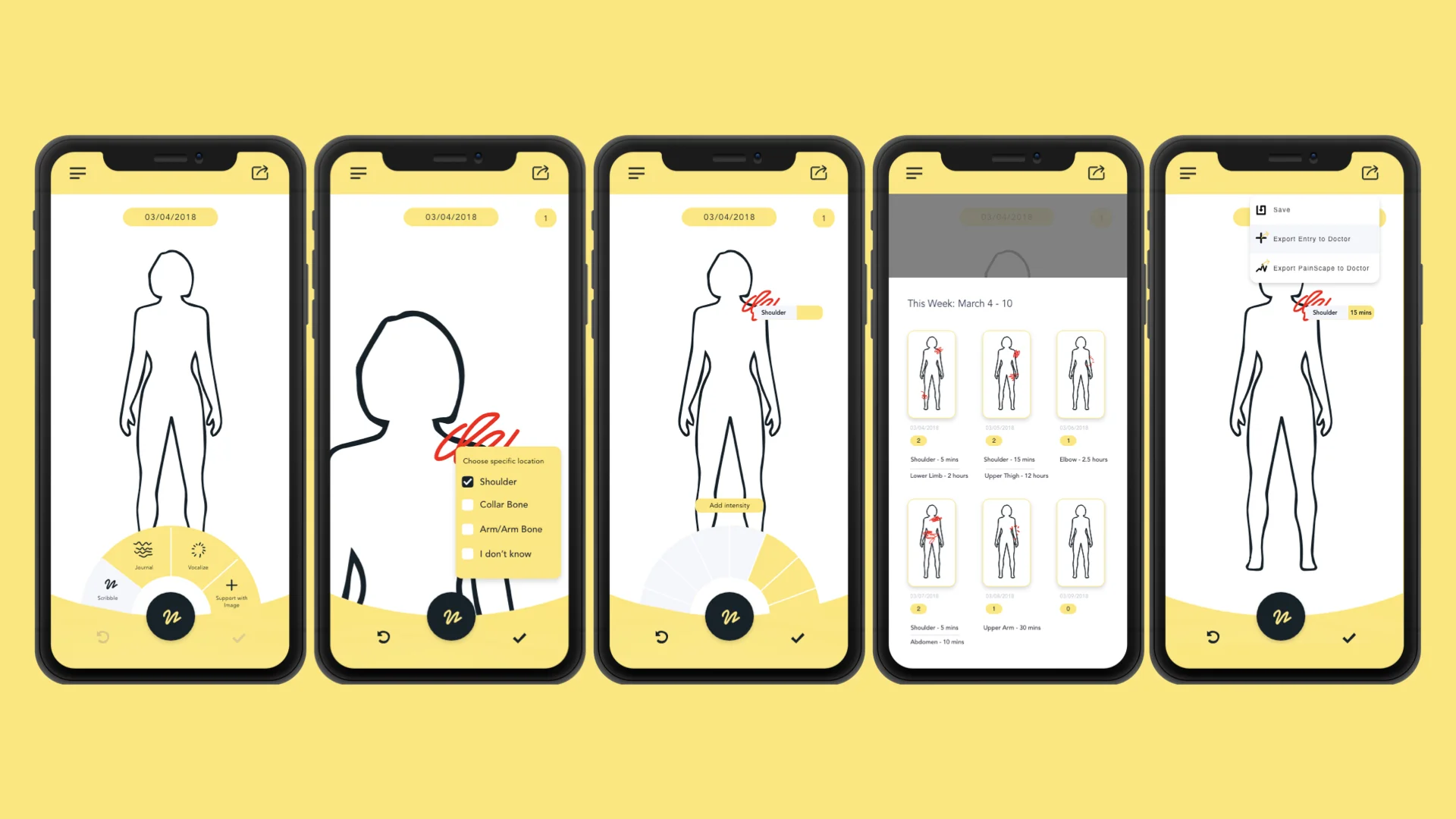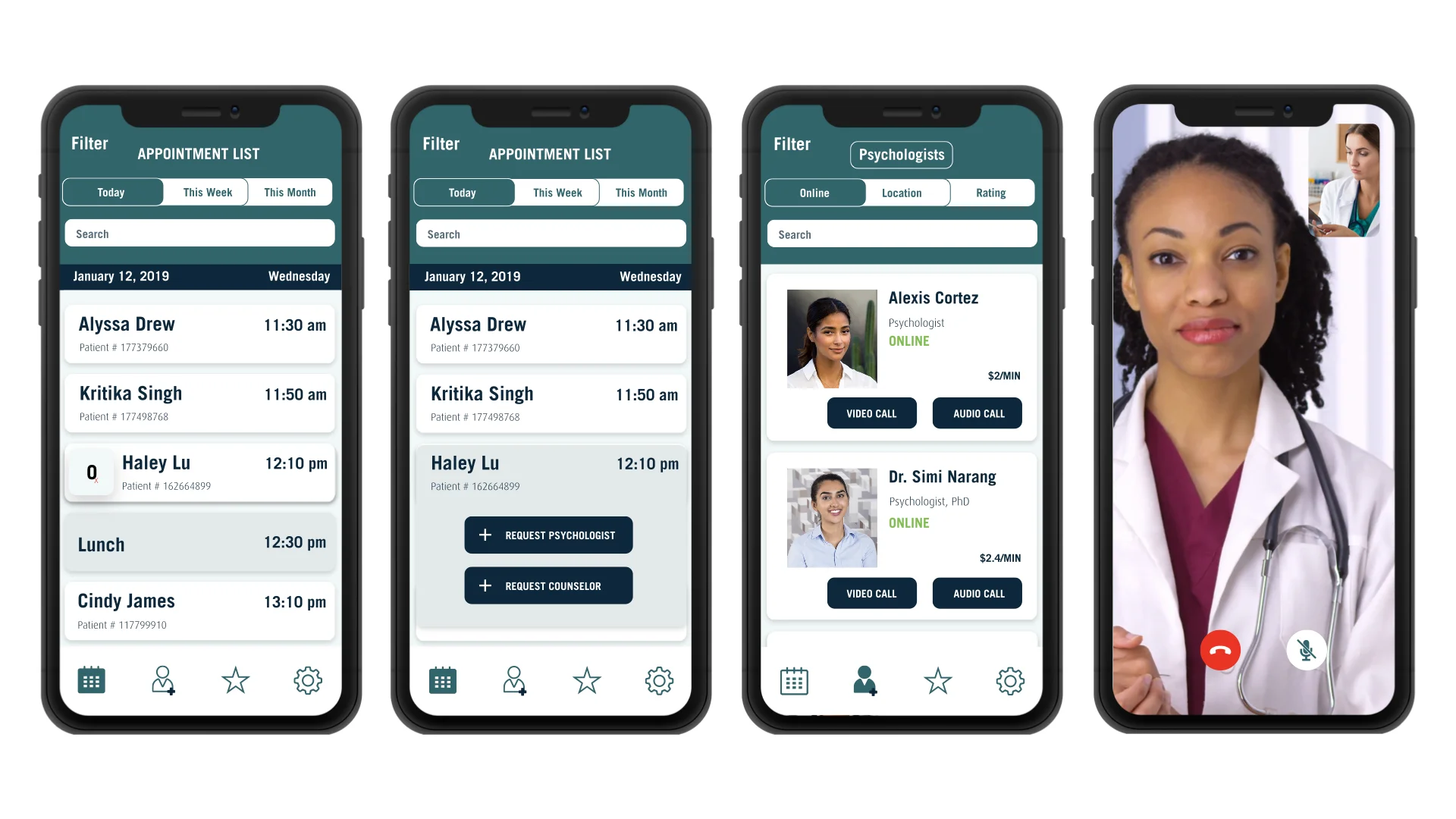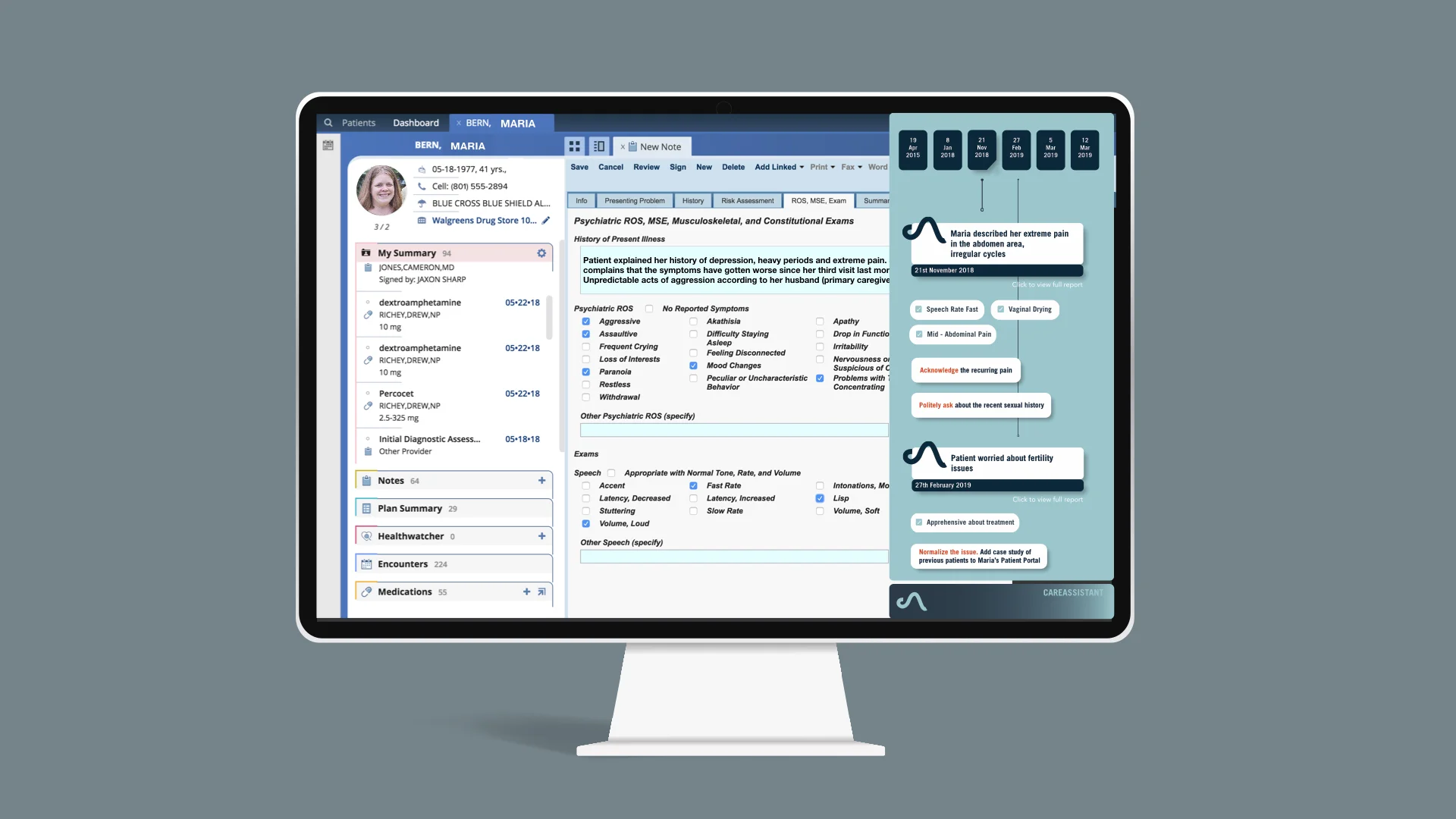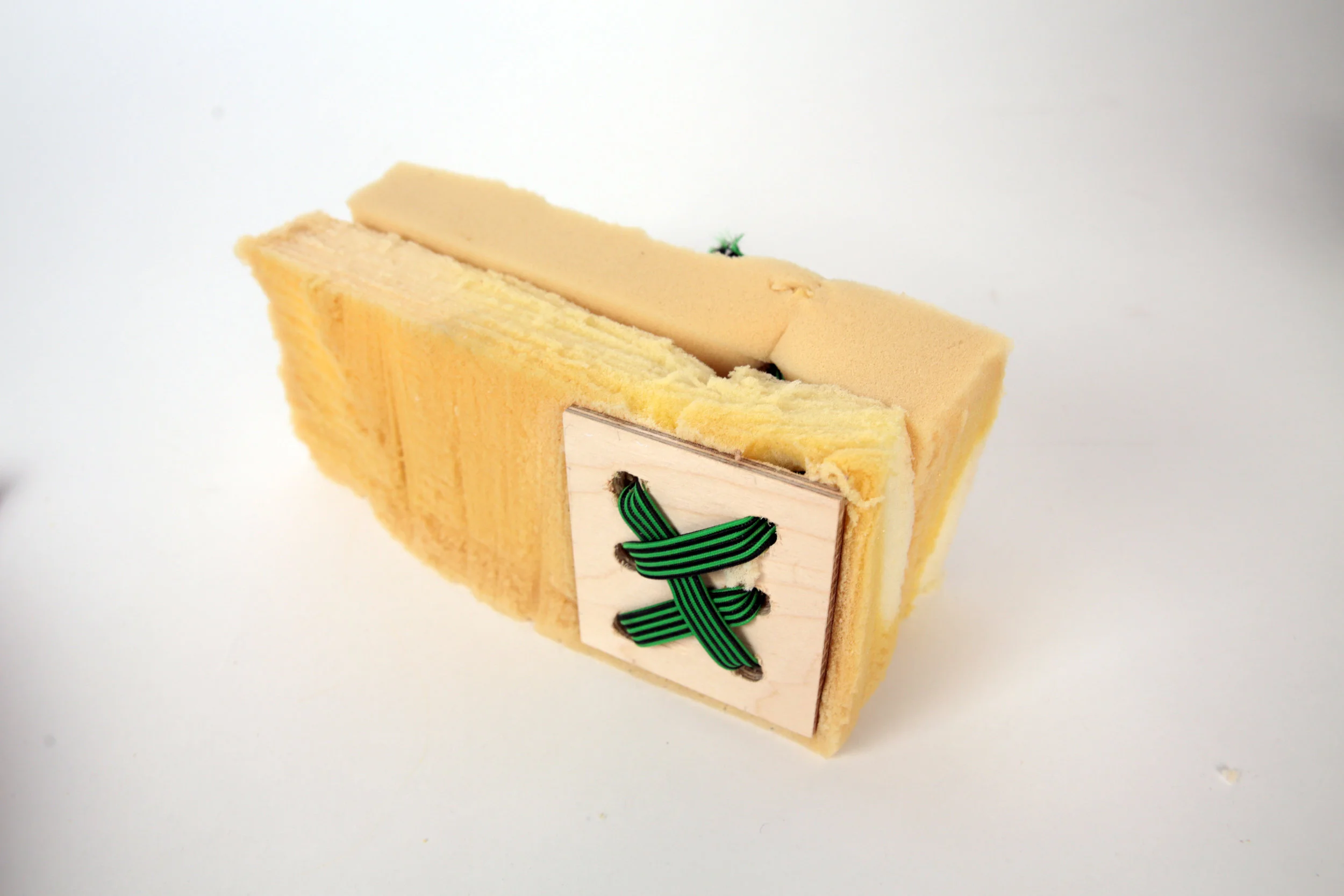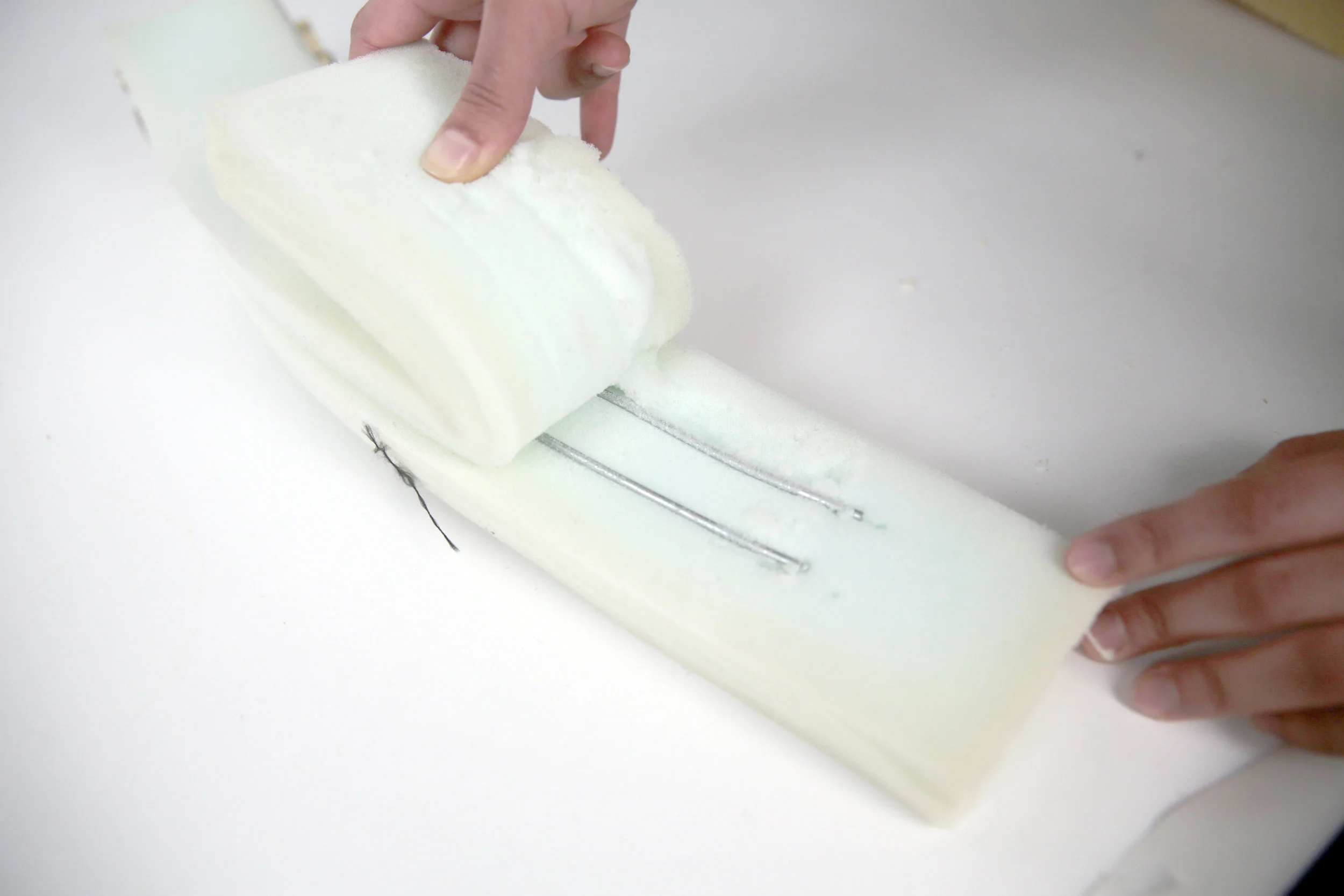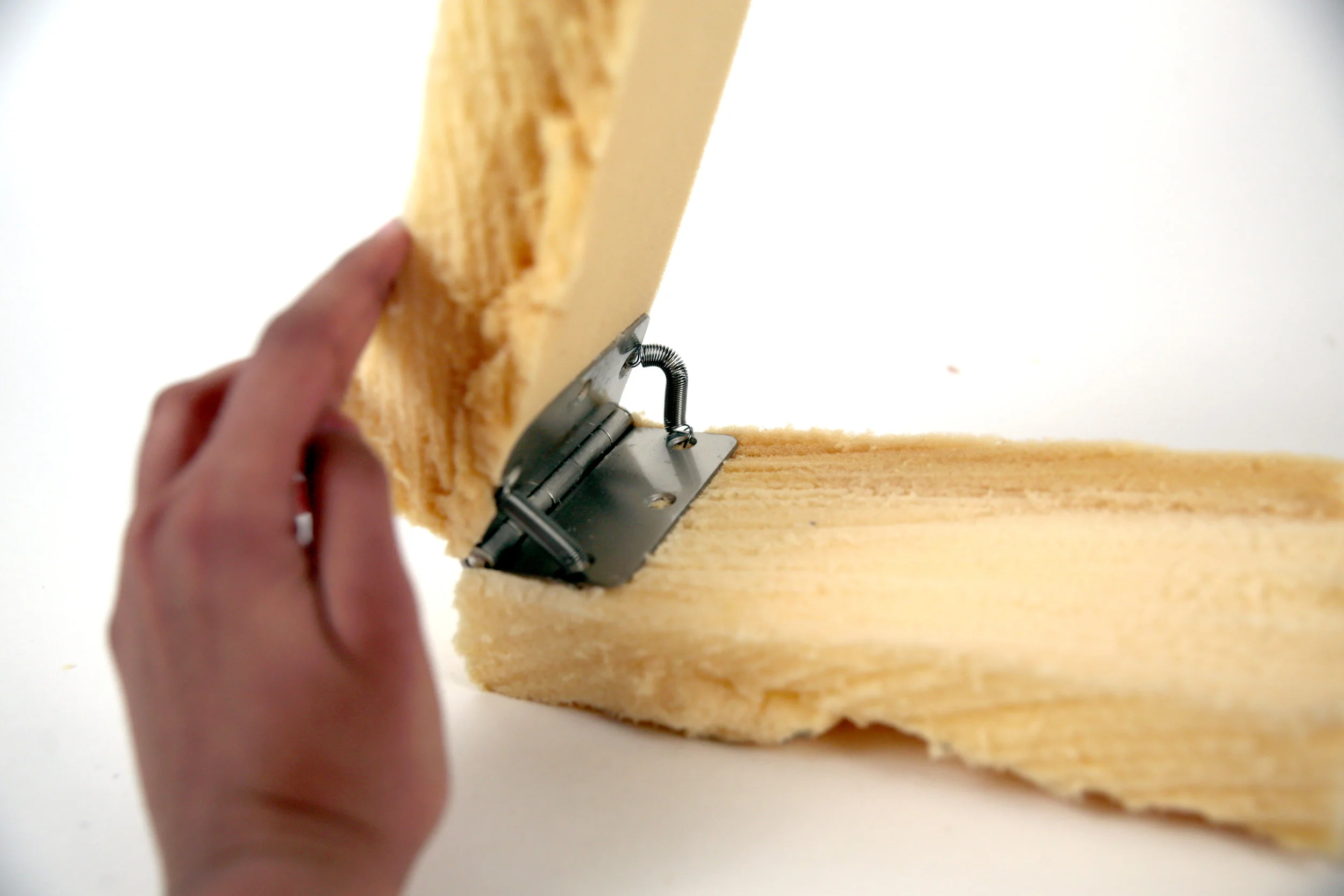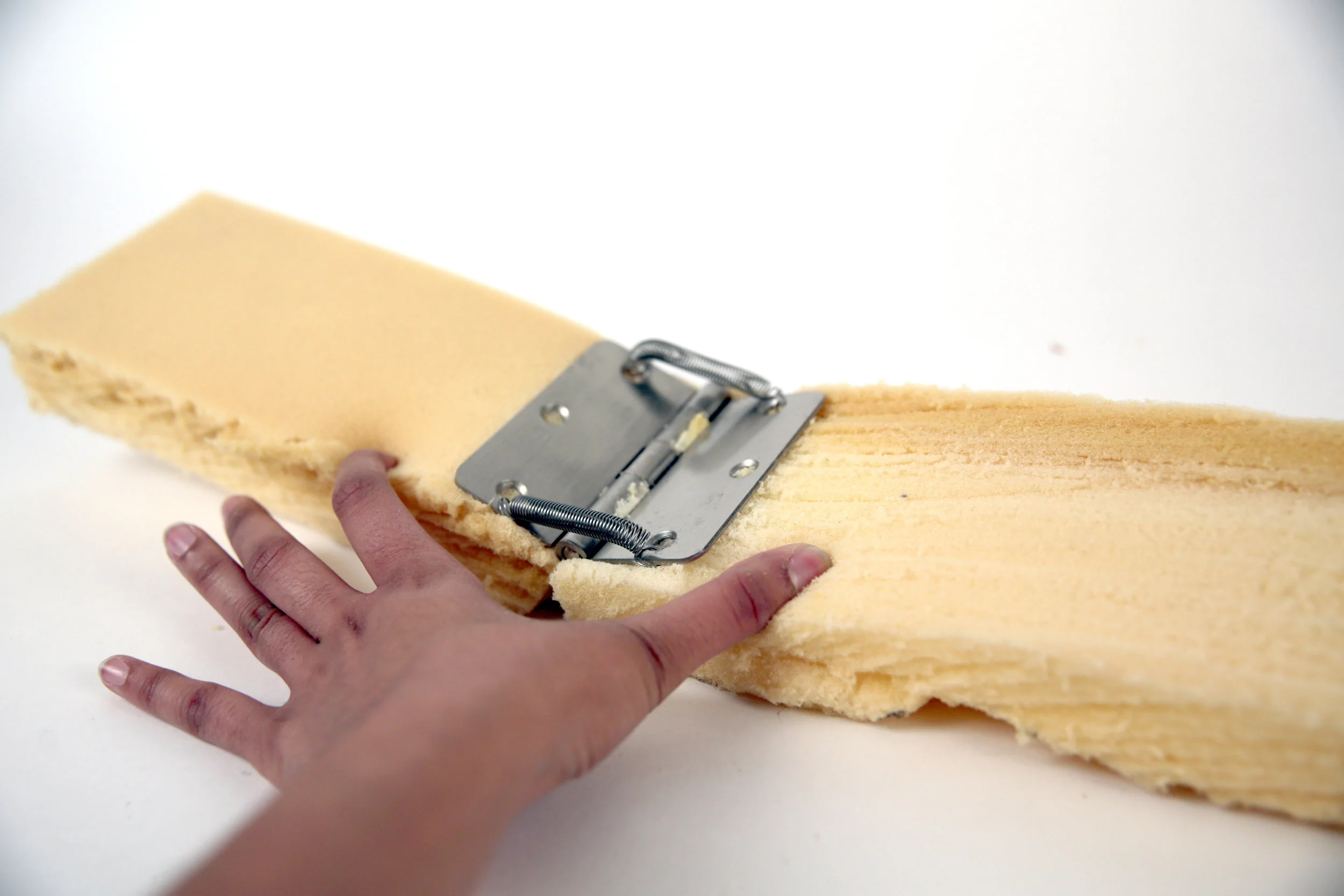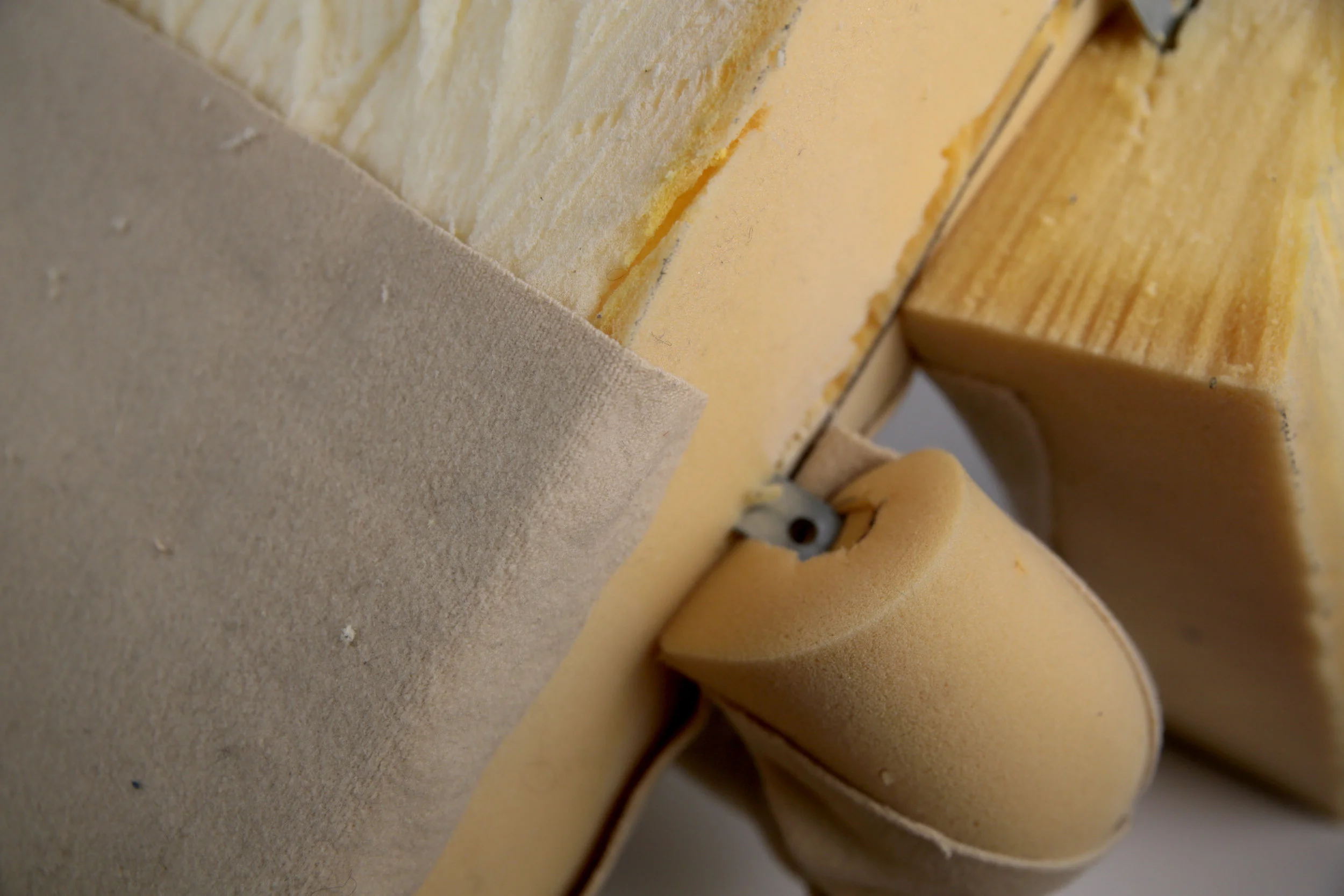HYSTERICAL WOMEN: Designing Experiences to Counter the Current Gaslighting Healthcare System
Through her thesis, Hysterical Women: Designing Experiences to Counter the Current Gaslighting Healthcare System, Rhea Bhandari aims to improve the healthcare experience of women by designing more efficient and empathetic diagnostic and treatment strategies to counteract a patriarchal healthcare system where women face neglect, misdiagnosis, and gaslighting. Her thesis relies on insights provided by stakeholders including female patients, healthcare providers, medical students, and therapists. Through extensive research and testing, Rhea created products and services that provide patients with new tools for communicating their pain, and doctors with the empathetic language necessary for a humane healing environment.
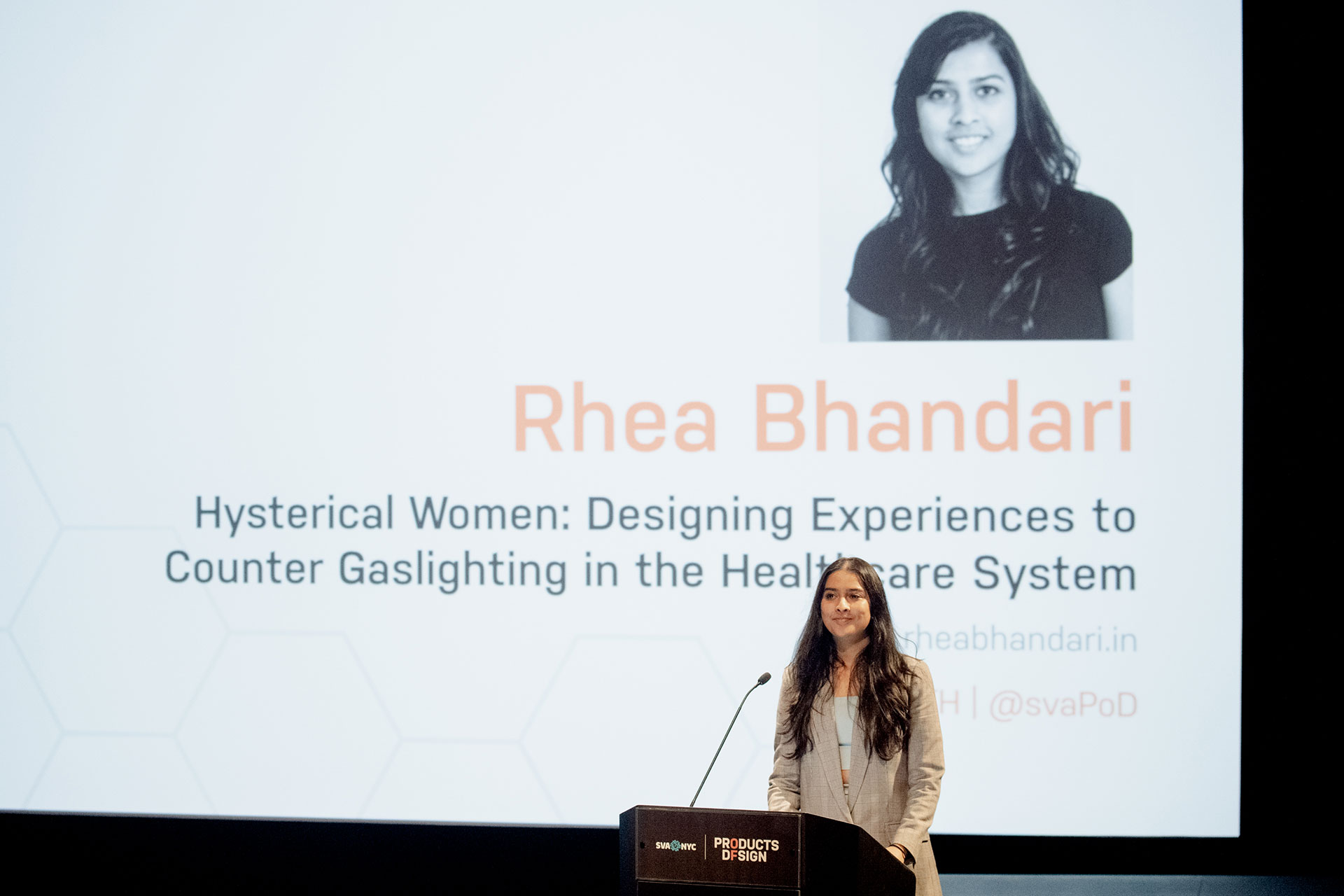
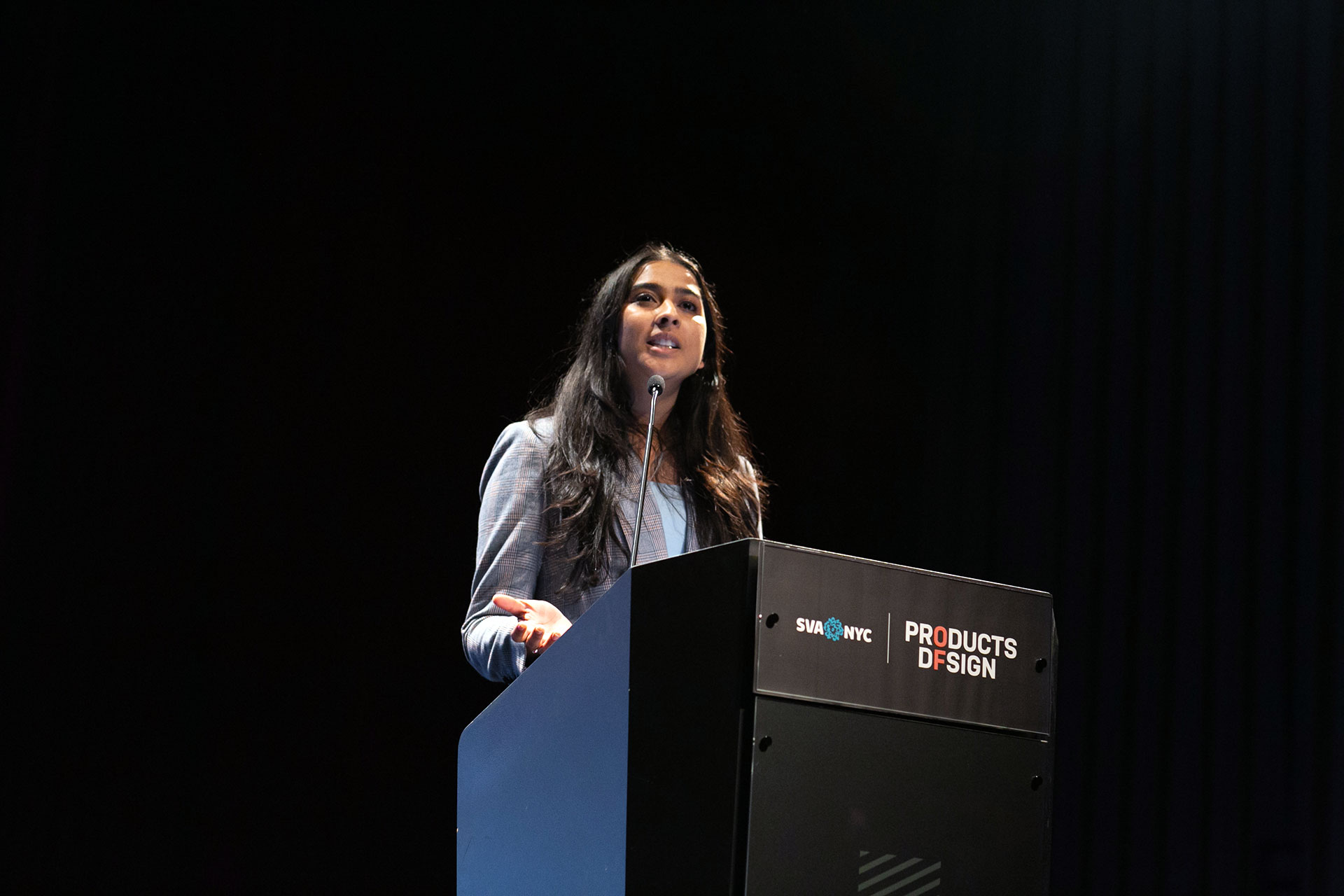
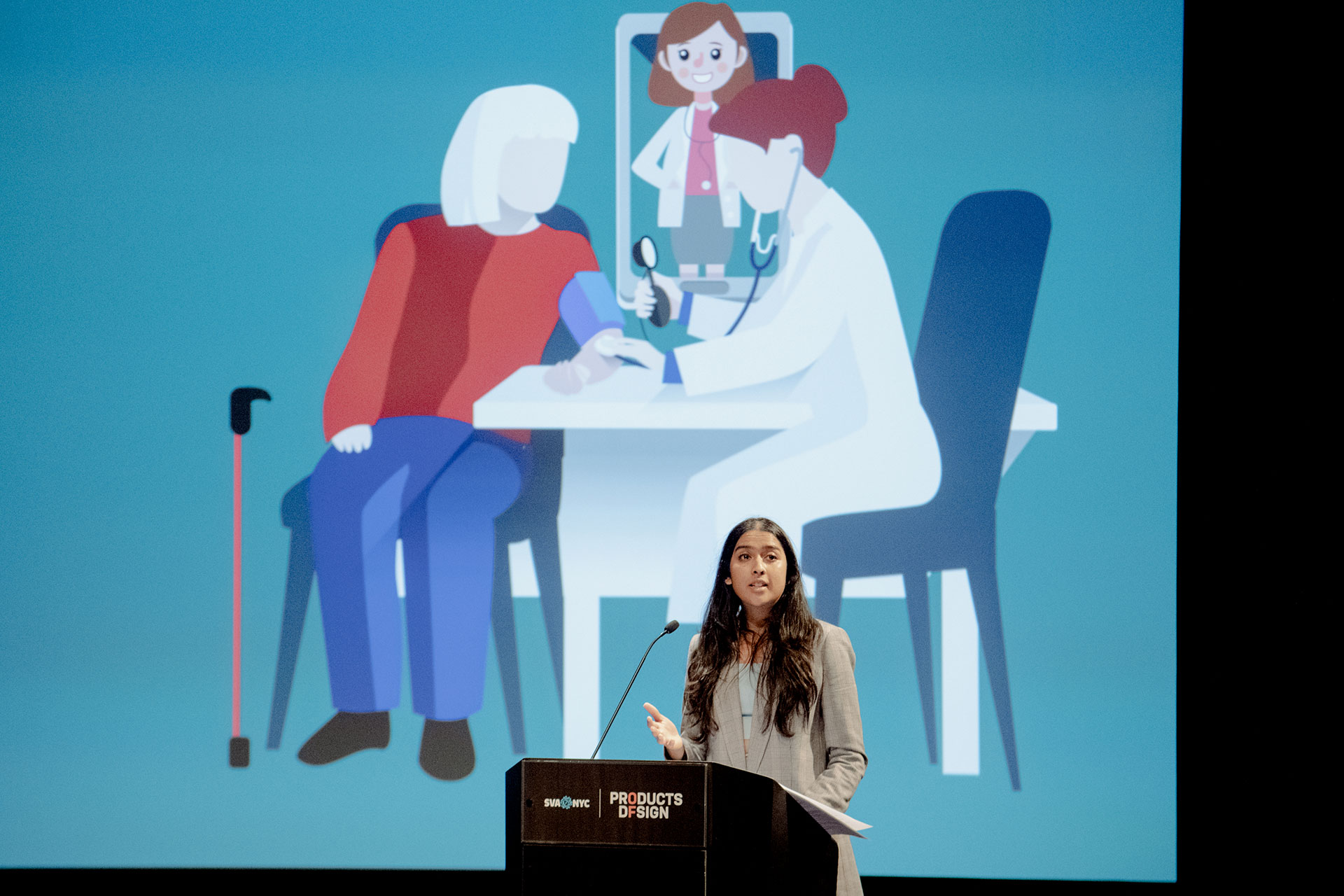
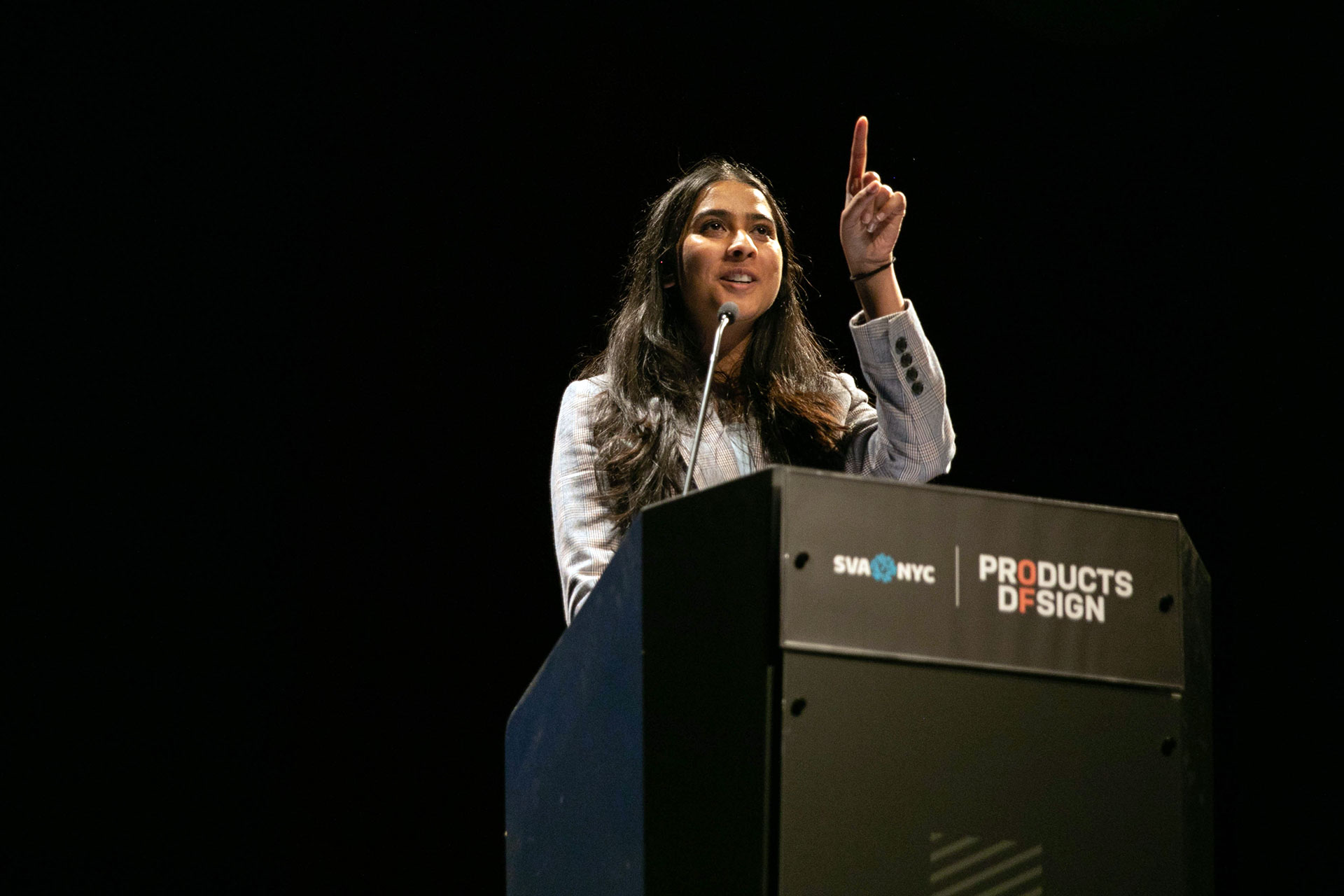
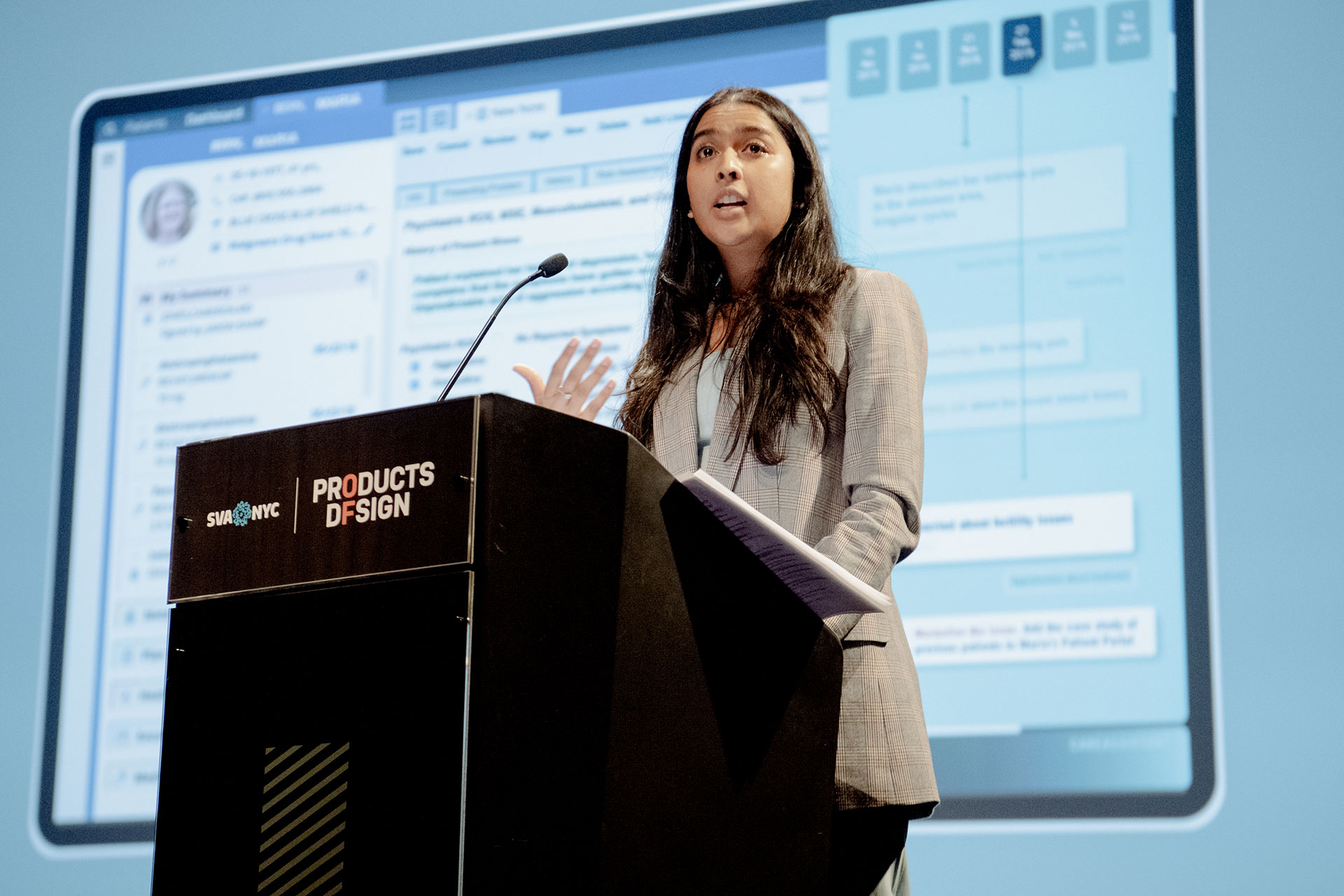
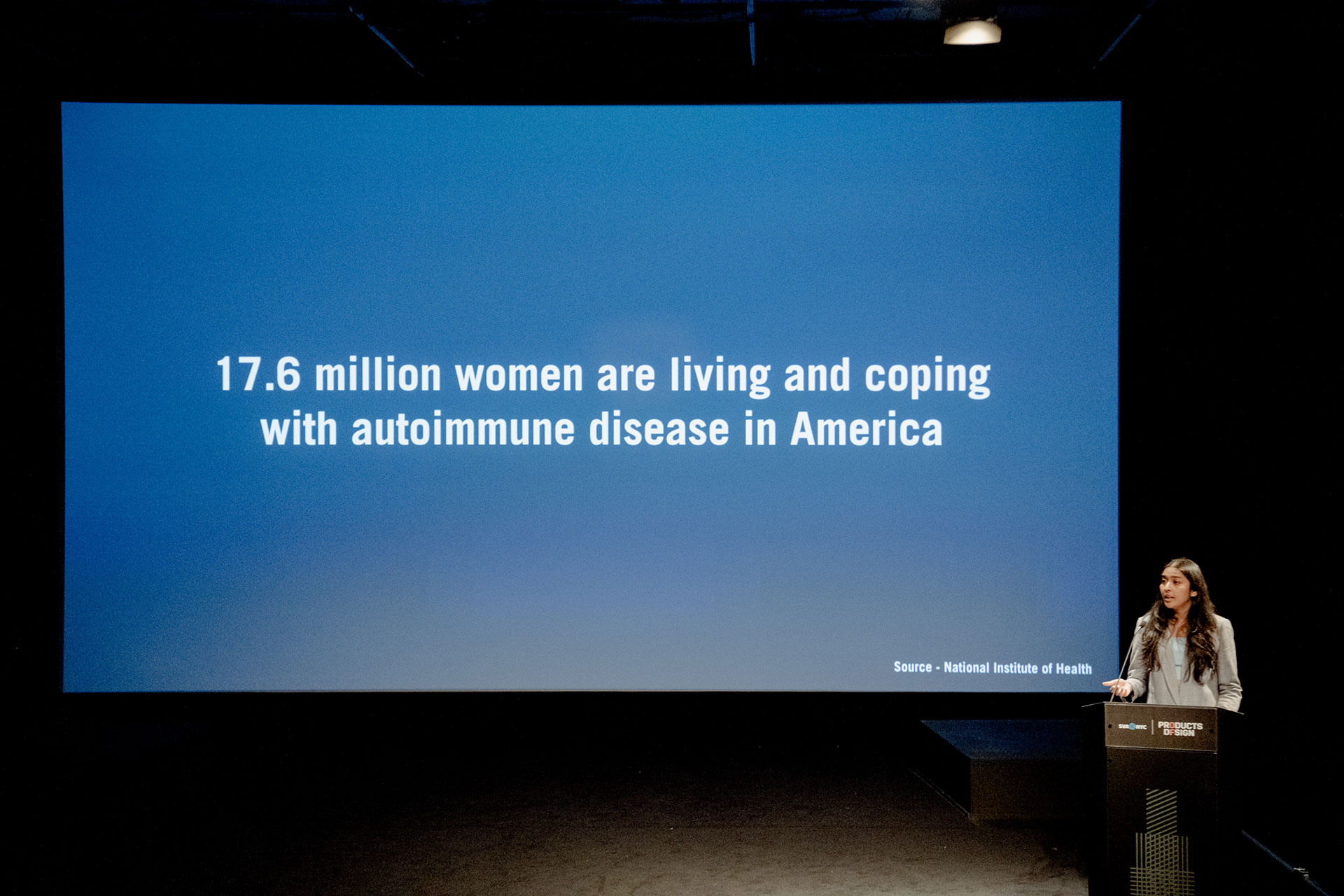
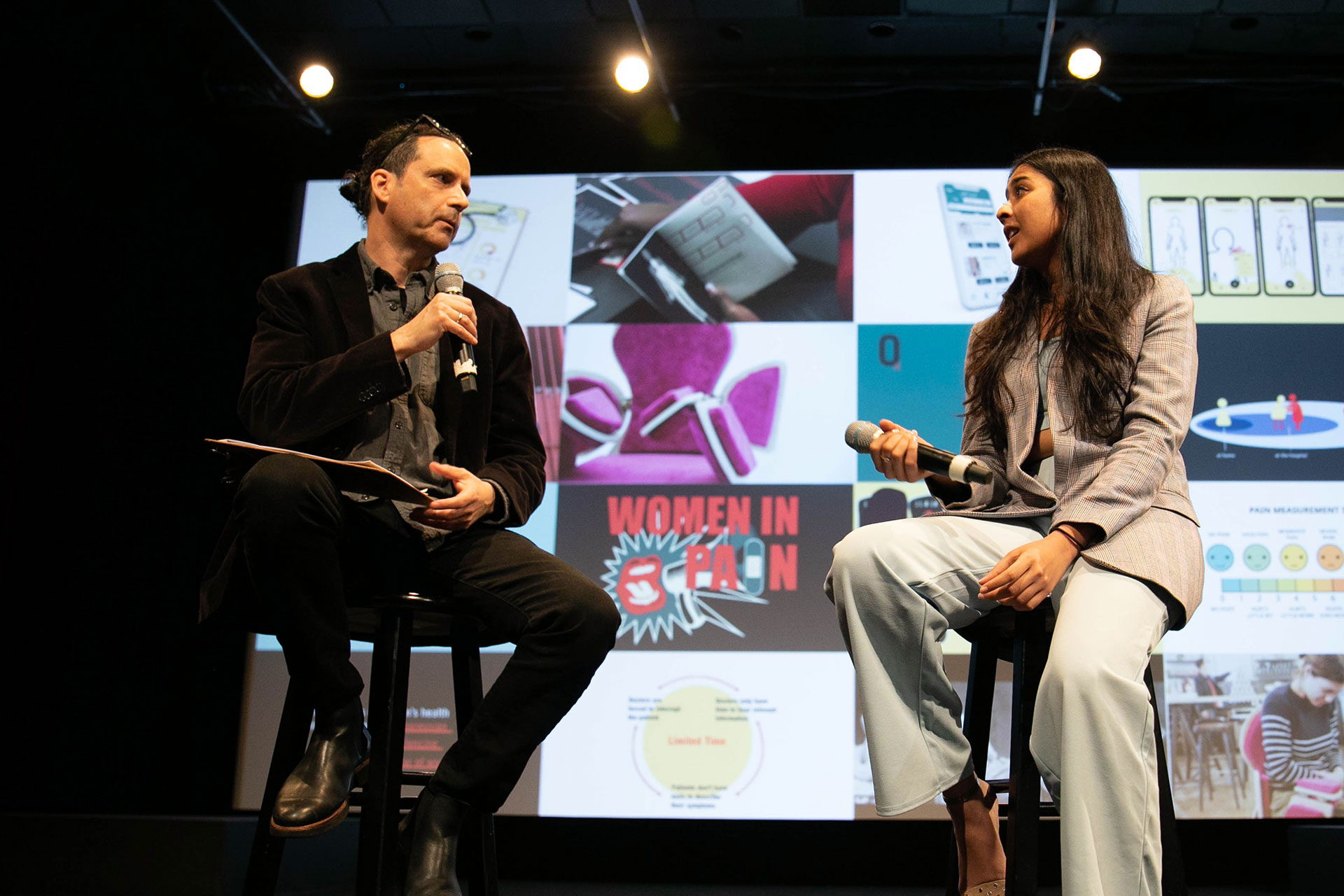



Women in Pain: A Co-Creation Workshop
Rhea organized private workshops where women who experience physical and/or emotional pain created their own pain scales to describe their symptoms, expressing their symptoms through words, two-dimensional scribbles, and physical representations. “It's all about effective storytelling—for patients as protagonists—to share their stories with doctors and their friends and family to help them understand their pain,” she shared.
Clinic Charades
Clinic Charades is a social game that aims to equip people with a different set of tools to describe their symptoms—rather than using conventional language, participants translate their symptoms into visual expressions of pain. The game focused on discussing invisible symptoms—symptoms that are hard to measure or describe. First, participants play a two-player game of Clinic Charades, where one person is assigned a symptom and draws it on a window display, and the second player, on the other side of the window display, guesses it. After players get comfortable drawing and guessing symptoms, they are asked to draw their own invisible symptoms.
Paint: a self-expression app for an efficient diagnosis
Paint is an app that allows patients to document and describe their symptoms using more than just words. With the app, patients can illustrate their pain in real time by scribbling on or marking relevant areas on a diagram of a human body. This app allows patients to specify the duration and intensity of their symptoms and express how they feel in that particular moment through text, voice, emojis, and images.
An aggregation of these entries helps patients create their own “PainScape,” which shows where their pain is manifesting. The app provides a summary of the patient’s predominant and minute pain areas—making it easier for doctors to understand the patient’s experience. The PainScape not only helps the patient effectively communicate their pain to others; it also helps the patient understand their own pain.
Desolve: A Trans-Disciplinary Care Platform
Desolve is an app for specialist doctors to conference call with psychologists, therapists, and counselors when first diagnosing a patient. Desolve is meant to be used for first-time patients during an initial consultation. If the doctor thinks that there could be psychological causes of the pain, the doctor can request a psychologist to participate virtually in the patient’s first meeting. This way, the patient’s physical pain and psychological pain are treated simultaneously.
CareAssistant
CareAssistant is a plugin to the Electronic Medical Record (EMR) already used by doctors. The plugin uses artificial intelligence to track the data entered by the doctor into the patient notes. CareAssistant works like a pop-up chatbot and provides doctors with statistics about similar, past symptoms that the patient experienced. CareAssistant also gives the doctor empathetic language suggestions in real time, based on the patient’s symptoms, to foster a more empathetic healing environment.
The Rani Pink Chair
The Rani Pink Chair is a heated lounge chair designed specifically for the office, to spotlight the largely overlooked phenomenon of menstrual pain in the workplace. The chair includes foldable arms that wrap around and “hug” the sitter. It provides both the necessary warmth for the user’s body and a way for co-workers to acknowledge their colleague’s pain.
To learn more about Rhea Bhandari’s work, take a loot at her projects in closer detail at rheabhandari.in.

